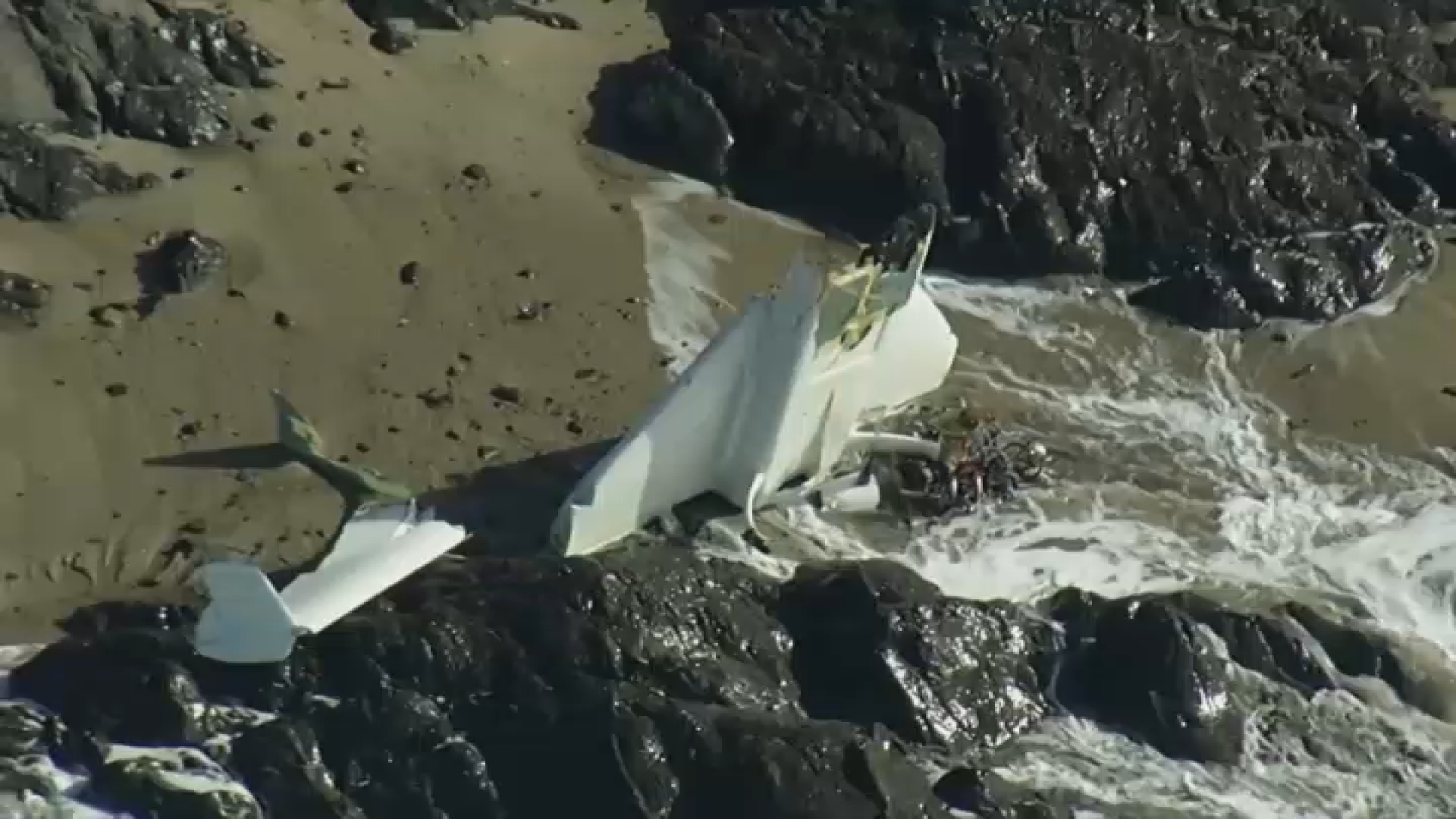A small airplane that crashed into the ocean off the Half Moon Bay coast on Sunday was constructed piece by piece over nearly a decade, one of tens of thousands of home-built aircraft that are part of a high-flying hobby taking off across the country.
Federal investigators said they believe four people were aboard the single-engine Cozy Mark IV when it went down in the evening just south of San Francisco. No survivors were found and only one body had been recovered from the waters near Half Moon Bay and identified as of Thursday.
The names of the pilot and two other passengers were not released. The plane was registered to an Oakland-based company called Winged Wallabies, Inc., according to Federal Aviation Administration records.
There have been no official indications of what went wrong, but a witness reported hearing an engine losing power and cutting out.
Get a weekly recap of the latest San Francisco Bay Area housing news. Sign up for NBC Bay Area’s Housing Deconstructed newsletter.
Thane Ostroth, a retired dentist who began building the aircraft in 1999 and flying it in 2008, said he sold the plane last year to a young, experienced and enthusiastic pilot from Australia for around $100,000, which is about what he estimated went into the project over the decades.
Ostroth said the buyer, in his late 20s, knew a lot about planes. He landed the plane perfectly on his first test flight, which is not easy to do.
“I told him, ‘That was well done,’" Ostroth recalled. “He said, ‘Thank you. I’ll buy the plane.’”
Authorities have not said whether the plane's owner was among those on board.
Ostroth said he heard about the crash in an online chat group for pilots and builders of Cozy aircraft, a class of planes constructed by individuals rather than mass-produced by companies.
He said it was “traumatic” to know the plane he had spent so much time on had crashed with people on board.
"It’s just a horrible feeling,” Ostroth said.
Like commercial aircraft, all home-built planes are required by the FAA to be inspected annually for air worthiness. Cozy aircraft have the same safety record as commercially built planes of similar size, said aeronautical engineer Marc Zeitlin, who consults with the National Transportation Safety Board on crash investigations involving Cozy aircraft, including this one.
More than 33,000 amateur-built aircraft are licensed by the FAA, a figure that has tripled since the 1980s.
The administration designates any non-commercial, recreational aircraft as “experimental.” Those can include planes built from kits with some prefabricated parts or from plans in which the builder buys or manufactures and assembles all the parts.
The four-seat Mark IV, at just over 16 feet (5.1 meters) long with a 28-foot (8.5-meter) wingspan, is a popular plane among the growing number of aviation hobbyists who build their own aircraft. Zeitlin owns one himself that he takes on day trips and cross-country voyages.
“The misconception is that these are put together by baling wire and glue,” said Zeitlin, CEO of California-based Burnside Aerospace. “But they are built using aircraft methodology.”
The Mark IV has a “canard” design, with a small forewing placed to the front of the main wing, making it reminiscent of a duck stretched out in flight. It is lightweight, only about 1,050 pounds (475 kilograms) empty, with the parts fitted together with epoxy.
With a top speed approaching 200 mph (322 kph), it is fast, stable and fuel-efficient, Zeitlen said.
“Like a sports car in the sky,” he said. “Very fun to fly.”
Ostroth said he bought the plans for his Cozy for about $500 and started putting it together in a friend's basement in Michigan. Eventually they moved construction to the home's garage and then built a barn in the backyard for the final steps.
“The plans come with a list of authorized suppliers of parts,” said Ostroth, who now lives in Florida. “You buy foam, you buy fiberglass, you buy metal parts from all the manufacturers. And you slowly piece it together.”
Help can be found from other enthusiasts who post tips and advice in online forums.
Ostroth flew the aircraft regularly for 15 years. He called it “a wonderful little plane.”
Sunday's crash was reported around 7 p.m. by a 911 caller who said the plane was in obvious distress and appeared to go down toward the water near Ross' Cove, according to the San Mateo County Sheriff’s Office.
The U.S. Coast Guard said a helicopter and boat crew looked in a 28-square mile (73-square-kilometer) area for nearly six hours before calling off the search around mid-morning Monday. A few hours later, a woman's body was found by a commercial fishing boat crew. The San Mateo County Coroner’s Office identified her as Emma Willmer-Shiles, 27, of San Francisco.
The National Transportation Safety Board said its investigators arrived on scene Tuesday to document the wreckage and interview witnesses. A preliminary report is expected within 30 days.
Associated Press writer John Antczak in Los Angeles contributed to this report.



